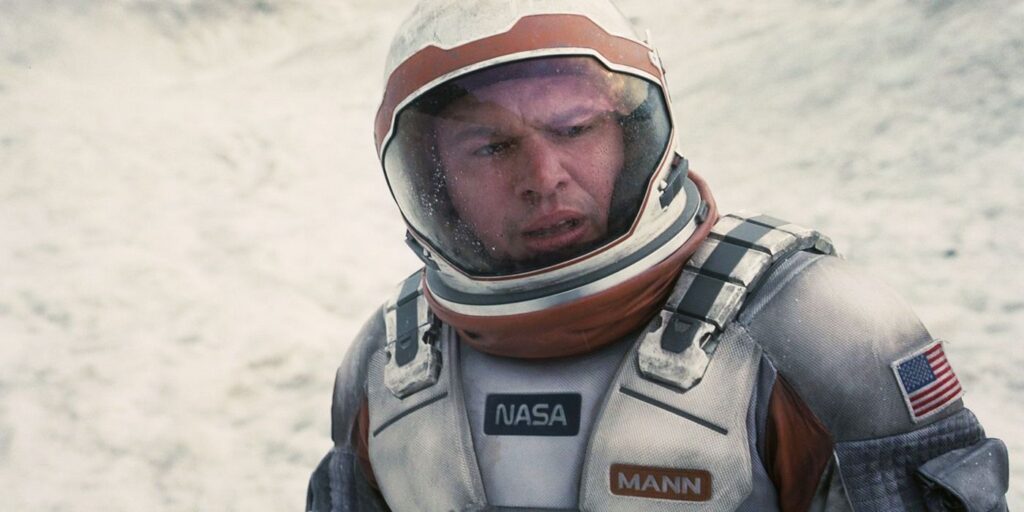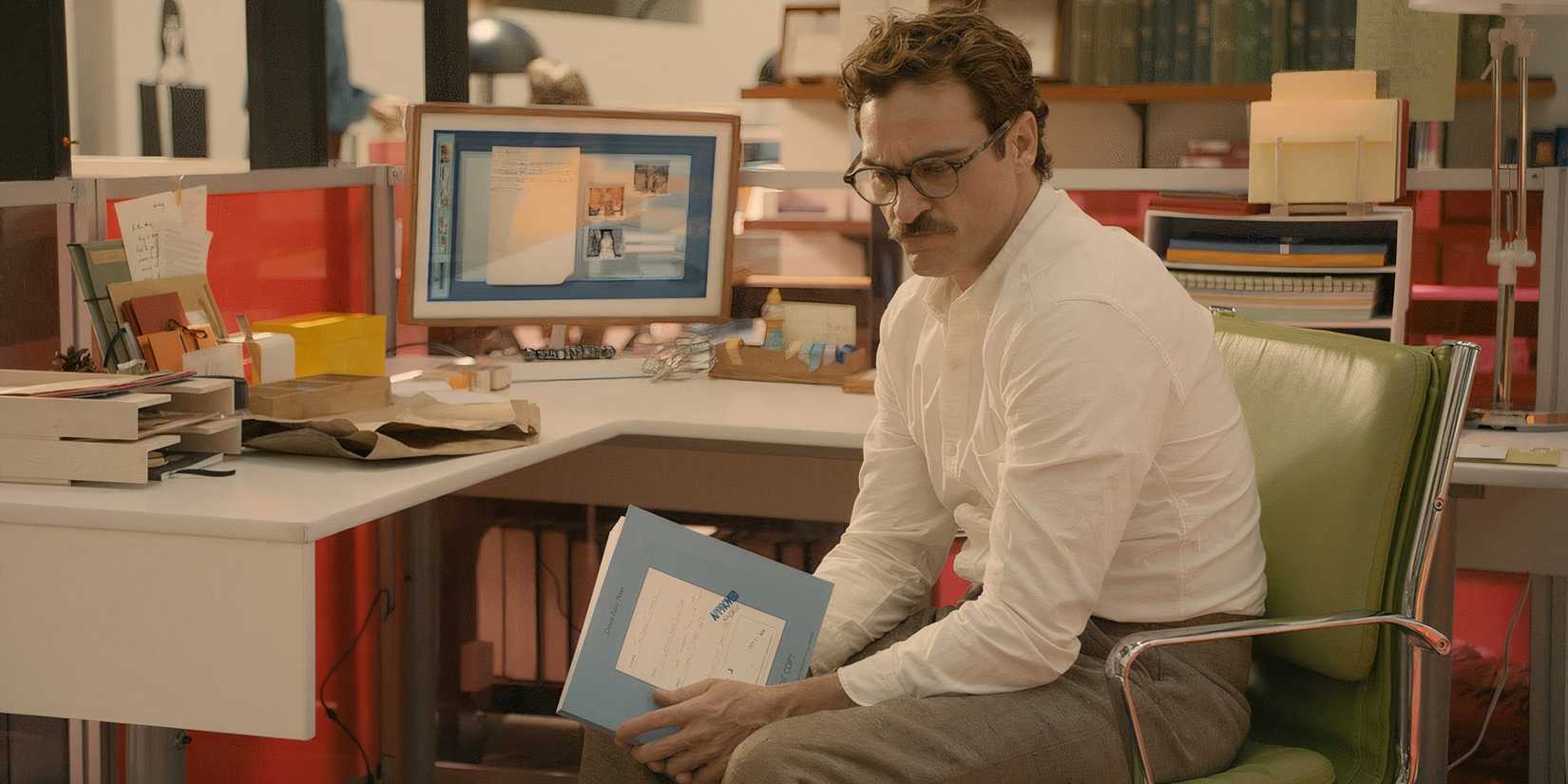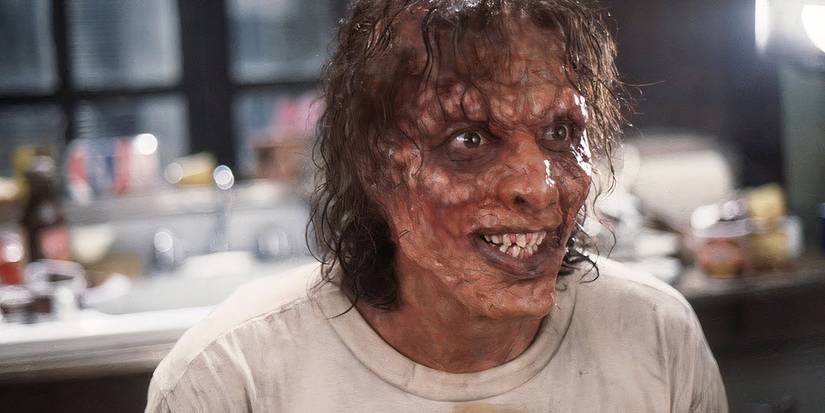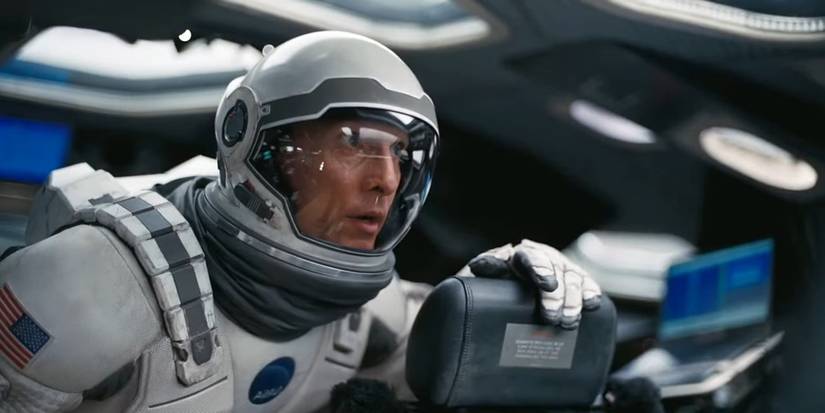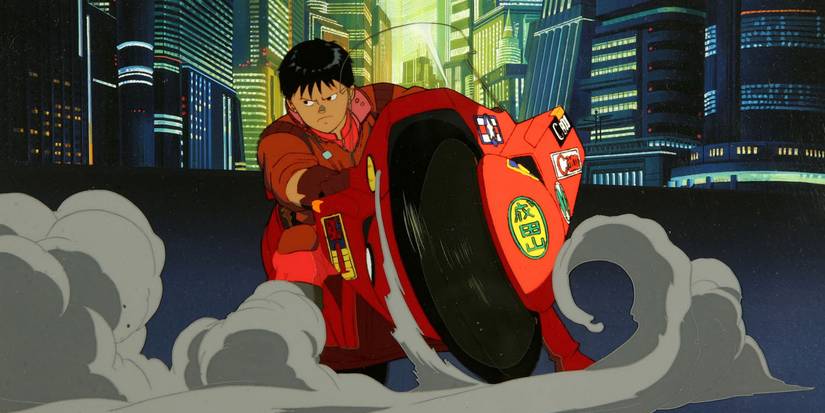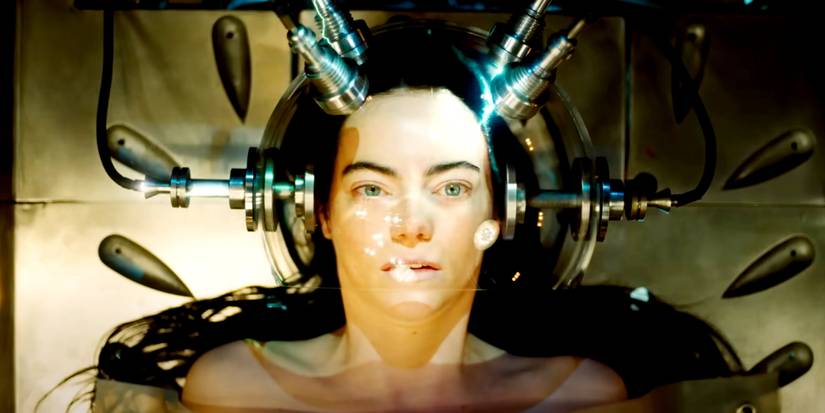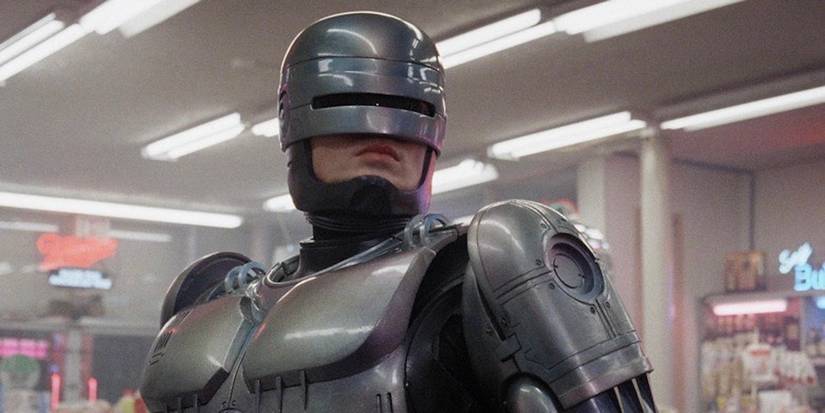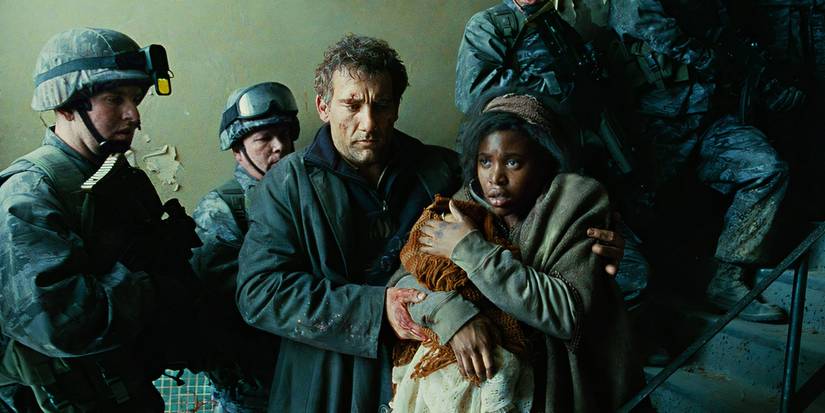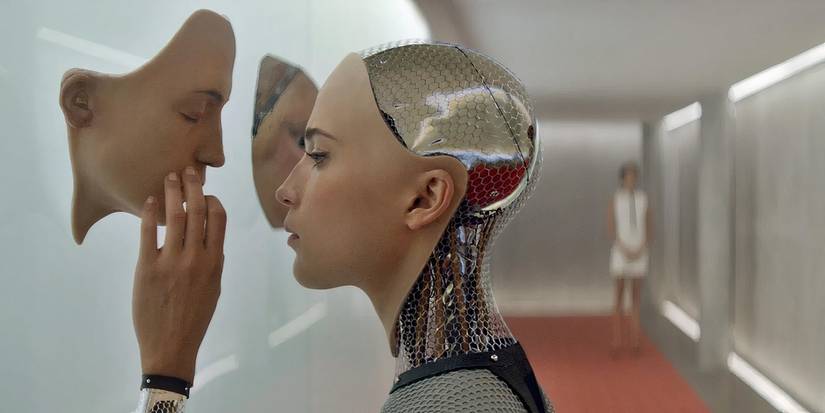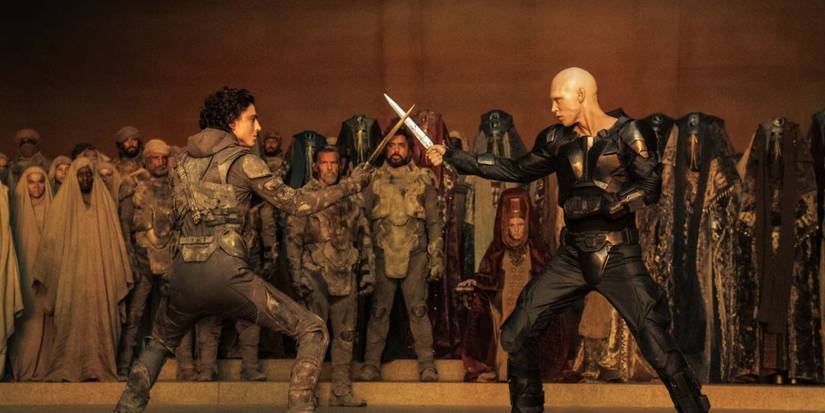The sci-fi genre has branched out in the last few decades to encompass a wide range of different styles. Many of the most important sci-fi movies were released in the 1960s and 1970s, including 2001: A Space Odyssey, Planet of the Apes, Star Wars, and Alien. The entire genre has been built on these foundations.
The development of new filmmaking technologies has allowed sci-fi to portray far-off worlds and unimaginable futures like never before, but good storytelling will always remain the most crucial element to any sci-fi film. The genre might touch on concepts that don’t exist in our own reality, but they must still speak to deeper truths about human nature.
Her (2013)
Her imagines a near future that looks extremely plausible. While other sci-fi movies choose to portray unimaginable futures with technology that defies the laws of physics, Her takes inspiration from mid-century design, with devices that look like cigarette cases, wallets, and books.
Her is constantly being vindicated, as artificial intelligence evolves and people develop more concerning parasocial relationships with unfeeling programs. Her resonates because it shows what emerging technologies can reveal about the human soul, with its yearning for uncomplicated affection and attention, even if this is ultimately meaningless.
Annihilation (2018)
Annihilation adapts the novel of the same name by Jeff VanderMeer, but Alex Garland adds plenty of his own ideas. Since VanderMeer’s book is filled with unknowable horrors that defy any attempts to visualize them, this is easier said than done, but Garland’s movie maintains this essence of cosmic horror superbly.
It can take a couple of watches to really get to grips with the true meaning of Annihilation, since so many of the movie’s images are intentionally disquieting and disorienting on a first watch. The journey into the unknown gradually abandons all the comforts of traditional narrative structure and semaphore, which makes for a unique sci-fi offering.
The Fly (1986)
The Fly is a rare example of a sci-fi remake that proves to be just as good as the original, if not better. While the 1958 version sums up the pulpy, B-movie appeal that the genre had at the time, David Cronenberg’s remake has somewhat loftier goals. It’s just as horrifying and weird, but with more substance.
The Fly is seen as an allegory about the ways that disease can shape people’s perceptions, including how people see themselves. More specifically, the real-world context of the ’80s brings the AIDS crisis to mind. This thematic exploration is just one part of what makes The Fly an enduring cult classic, but the visual effects and makeup are also key.
Interstellar (2014)
Technological advances in the 21st century have allowed science-fiction movies to depict things that were previously impossible, but it still requires a great filmmaker with a mixture of expertise and vision. Christopher Nolan is one such director, and Interstellar may be his most visually striking movie in a long line of jaw-dropping blockbusters.
Interstellar is one of Nolan’s best movies, riffing on 2001: A Space Odyssey in some ways while also including unique touches, like Nolan’s obsession with non-linear story structures. This results in an ode to sci-fi that still feels alive and unpredictable. It’s a sci-fi epic that’s easy to get wrapped up in.
Akira (1988)
Animation and sci-fi both have the capacity to explore new and unfathomable ideas, so it’s no wonder they often bring the best out of one another. While Paprika, Ghost in the Shell, and The Iron Giant illustrate this point perfectly, Akira deserves extra credit for preceding these movies. Even today, it looks more sophisticated and complex than most animated movies.
As well as being a great sci-fi movie, Akira shows that animated action can be just as powerful as live-action. In between its electrifying bike chases and fight scenes, Akira has some moments of delicate poise, allowing the audience to take in the colorful marvel of the city.
Poor Things (2023)
Poor Things is rarely discussed as a sci-fi movie, because it also has elements of a period drama, a quirky romance and a pitch-black comedy. Most of Yorgos Lanthimos’ movies defy simple classification, so it’s unsurprising that Poor Things’ take on the Frankenstein myth refuses to adhere to the conventions of sci-fi.
Emma Stone delivers an outstanding performance in Poor Things, playing a woman surgically implanted with the mind of a child. Bella Baxter gradually comes to understand the world around her, although there are some facets of human nature that are impossible to understand. As Bella develops, Lanthimos’ aesthetic approach becomes more complex with her.
RoboCop (1987)
RoboCop often resembles a straight-laced sci-fi thriller, but this only makes its dark social satire even funnier. The fact that RoboCop is both exciting and emotionally complex may be its best joke of all, since the movie pokes fun at automation and humanity’s self-destructive desire to cede power to unfeeling machines.
RoboCop is strangely moving for a film with a character who has such a limited emotive range. It plays into the old trope that a non-human character may be more human in some ways than anybody else, and it’s easy to sympathize with the plight of poor RoboCop. The romance, comedy, and action would all fall flat with a less intelligent script.
Children Of Men (2006)
Children of Men is the perfect illustration that a movie’s box office receipts don’t always reflect its quality. Although it was a flop at the time, it has since been recognized as a sci-fi masterpiece. It’s one of Alfonso Cuarón’s best movies, blending the unbridled spectacle of Gravity with the raw emotion of Roma.
Children of Men takes place in a depressingly recognizable dystopia, where a plummeting birth rate has caused massive economic strife, which has ushered in a rise in xenophobia and authoritarianism. Although the action scenes are the most eye-catching, Children of Men is replete with fascinating worldbuilding details.
Ex Machina (2014)
Ex Machina unpacks the theme of artificial intelligence with remarkable grace and nuance. It maintains a steely focus on the drive behind artificial intelligence, particularly the desire for men to have female voices and bodies at their disposal. True autonomy is seen as the Holy Grail, but absolute servitude is the real goal.
Artificial intelligence is one of the oldest themes in sci-fi, but Ex Machina grounds itself in the modern day by examining the 21st-century archetype of the young tech billionaire. Oscar Isaac’s character has the genius and the eccentric quirks of an artist, but with none of the humanity.
Dune: Part Two (2024)
Frank Herbert’s Dune is a foundational work of modern science fiction, but it took decades for it to finally get the big-screen adaptation that it deserves. David Lynch’s 1984 version has its admirers, but not as many as Denis Villeneuve’s recent movies. 2021’s Dune was already a hit, but Part Two takes things to a new level.
Villeneuve’s decision to split Herbert’s novel into two parts gives him enough room to capture the magnitude of Dune’s imagery. Part Two is filled with breathtaking moments, including Feyd Rautha’s gladiatorial battle on Giedi Prime and the opening Harkonnen raid. Dune: Part Three will adapt the next novel in Herbert’s series.

